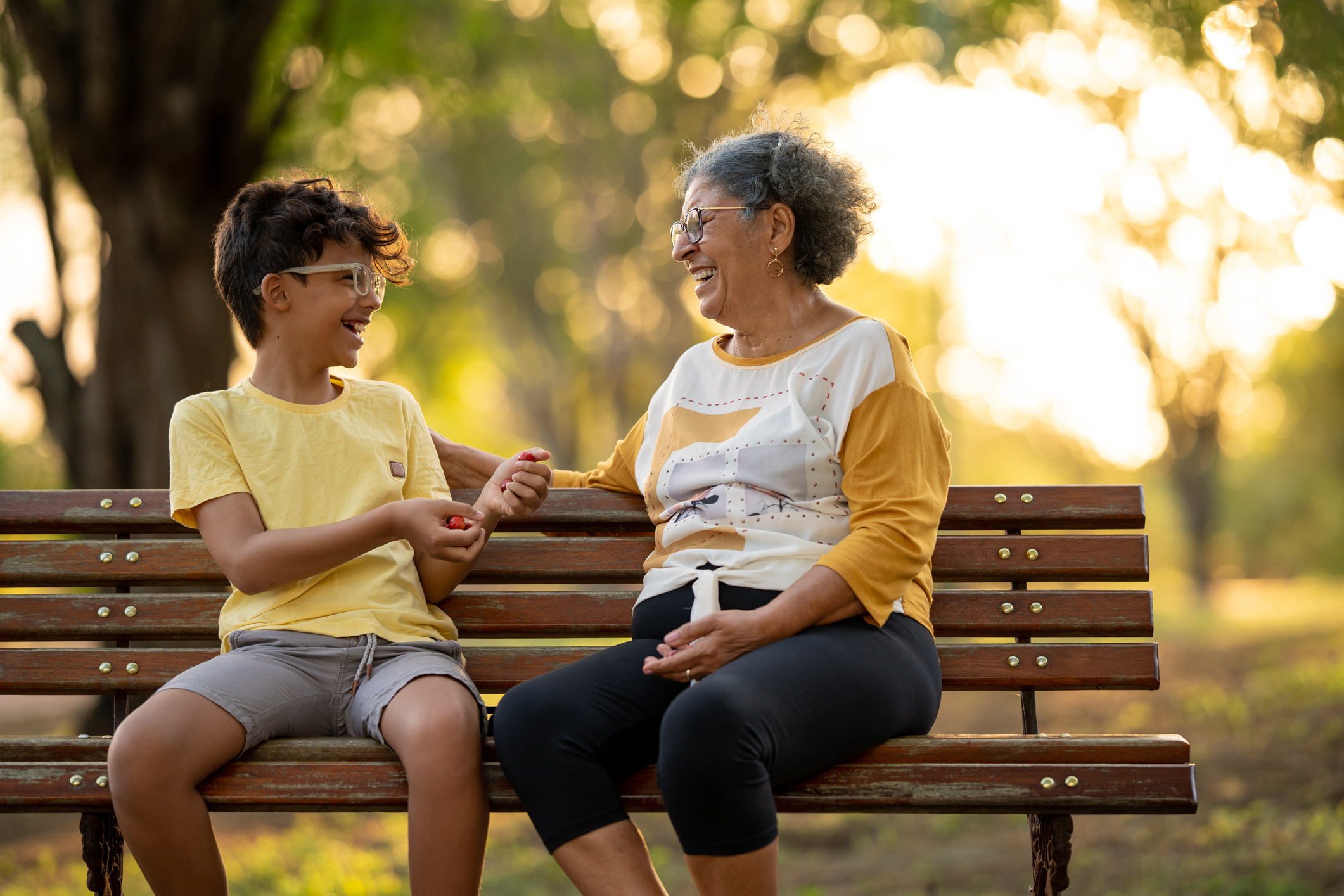
Parents may feel overwhelmed with the heavy topic of child sexual abuse, and fear may lead some folks to choose never to address the topic with their children. If this is you, you are not alone. The good news is that there are numerous ways that you can educate your child about safe body boundaries without needing to talk directly about sexual abuse.
Help your child by compassionately opening the door to conversations about bodies, safe boundaries and speaking up if something is wrong. Simply opening the lines of communication can go a long way toward protecting your child against potential abuse.
The tips below may help parents gain the confidence they need to prevent child sexual abuse with everyday conversations that can be had with children and teens of any age.
1. “It’s important you have a few adults you can really trust.”
Having supportive adults around can change a child’s life, either by preventing abuse entirely or by providing safe people they can reach out to if something bad happens.
- Ask your child what adults they trust and why they trust them.
- Emphasize the importance of trusting people who value the safety of our bodies, respect our feelings and thoughts, and support and encourage us.
- Check that your child has two or more adults from different areas of their life, such as home, school, church, extracurricular groups, neighbors, or extended family, that they trust to turn to if something is wrong. Ensure your child knows how to contact these people if needed.
- Encourage your child to reach out to these adults if they ever feel uncomfortable or unsafe or if they feel they’ve done something wrong that would get them in trouble.
2. “It’s important we know the names of our private parts.”
Teaching your children the correct names for all body parts – including genitals (e.g. penis, scrotum, vulva, vagina, etc.), anus, buttocks, and breasts – encourages kids to be comfortable and confident talking about their bodies.
- Using vague language, nicknames, or not talking about private parts at all can unintentionally leave kids with the idea that these parts of our bodies should not be talked about or are shameful.
- Using specific language to identify private parts of the body increases the chances that your child will recognize abuse and know to speak up if it happens.
- This language also provides them with a sense of responsibility for what happens to their body parts, which promotes health later in life.
- While this conversation is best with younger children, older children, and teens also benefit from hearing adults they trust to use the proper names for private parts.
3. “We don’t keep secrets from each other, especially if it’s something that makes us uncomfortable or unsafe.”
When a person wants to sexually abuse a child, they rely on that child to keep the abuse a secret. Having a conversation with your child or teen about secrets gives you an opportunity to emphasize they are not alone and that secrets should not be kept.
- Define a secret (something you are not supposed to ever tell or share) and how that is different than a surprise ( something you wait to share until a certain day or time).
- With older children and teens, have discussions about how they can responsibly decide when information should be shared with an adult. Explain how sharing certain information with an adult protects safety and health and how it differs from gossiping.
- Remind kids that they should tell a trusted adult if they hear information or have experiences that make them feel uncomfortable or unsafe or involve other people getting hurt. Highlight how everyone’s safety matters more than people getting in trouble.
- As a trusted adult, you can demonstrate speaking up, having honest conversations, and not keeping secrets. Make sure that family and friends also know your family’s rules about secrets.
4. “Your body belongs to you and other peoples’ bodies belong to them.”
Like all people, kids deserve bodily autonomy – the right to control what does and does not happen to their bodies. Asserting that right is a skill that takes practice, and when kids are given the opportunity to practice this early and often in life, it can help prevent future abuse and give them the skills needed to know sexual abuse is not okay.
- Let your children know they have the right to say “no” to any touch or activity involving their bodies, especially if it makes them feel uncomfortable or unsafe.
- Let family and friends know that in your family, we respect children’s right to say “no” if they don’t want a hug if they don’t want to play, or want any other kind of touch or interaction.
- Emphasize with your child that we are also responsible for making sure to respect others’ bodily autonomy. If someone says they are uncomfortable with something, such as a high five or hug, talk to your child about respecting when others say “no” and suggest alternatives.
5. “We always make sure someone wants to do something before we do it – this is consent.”
When we ask people for their permission, whether on an everyday topic or related to touch, we are building a skill that prevents future abuse and builds thriving and healthy relationships.
- Role-model this skill by regularly asking for their consent – “Can I give you a hug?”, “Are you ready to get dressed?” “Do you want to go to the pool and swim?”.
- Explain why adults may need to make decisions to ensure they are safe and healthy – “As your parent, I am responsible for making sure you go to school so that you learn and grow. For that reason, you need to get dressed.”
- Encourage your child to practice asking permission with you, other family, and friends. Remind them to wait for the answer and listen for a “yes.” Remind them that if someone says “yes” originally but changes their mind later, while it may be disappointing, we need to respect their choice.
If you are looking for more resources on how to have these conversations with your kids, check out the CARES Northwest Prevention Education YouTube page or CARES Northwest for more information.

Lindsay Spaulding is the prevention health coordinator at CARES Northwest where he educates and empowers communities around the prevention of child abuse. He joined CARES Northwest in 2022 after spending seven years with the Sexual Assault Resource Center in Washington County.
As program manager with the resource center, Lindsay trained and led volunteers, educated community groups, and designed and promoted a high school violence prevention curriculum. He also developed several violence prevention initiatives while working in Nebraska.
Lindsay’s violence prevention experience won him the Visionary Voice Award in 2017 from the National Sexual Violence Resource Center. He holds a Bachelor of Arts degree in Psychology from the University of Nebraska – Lincoln.
